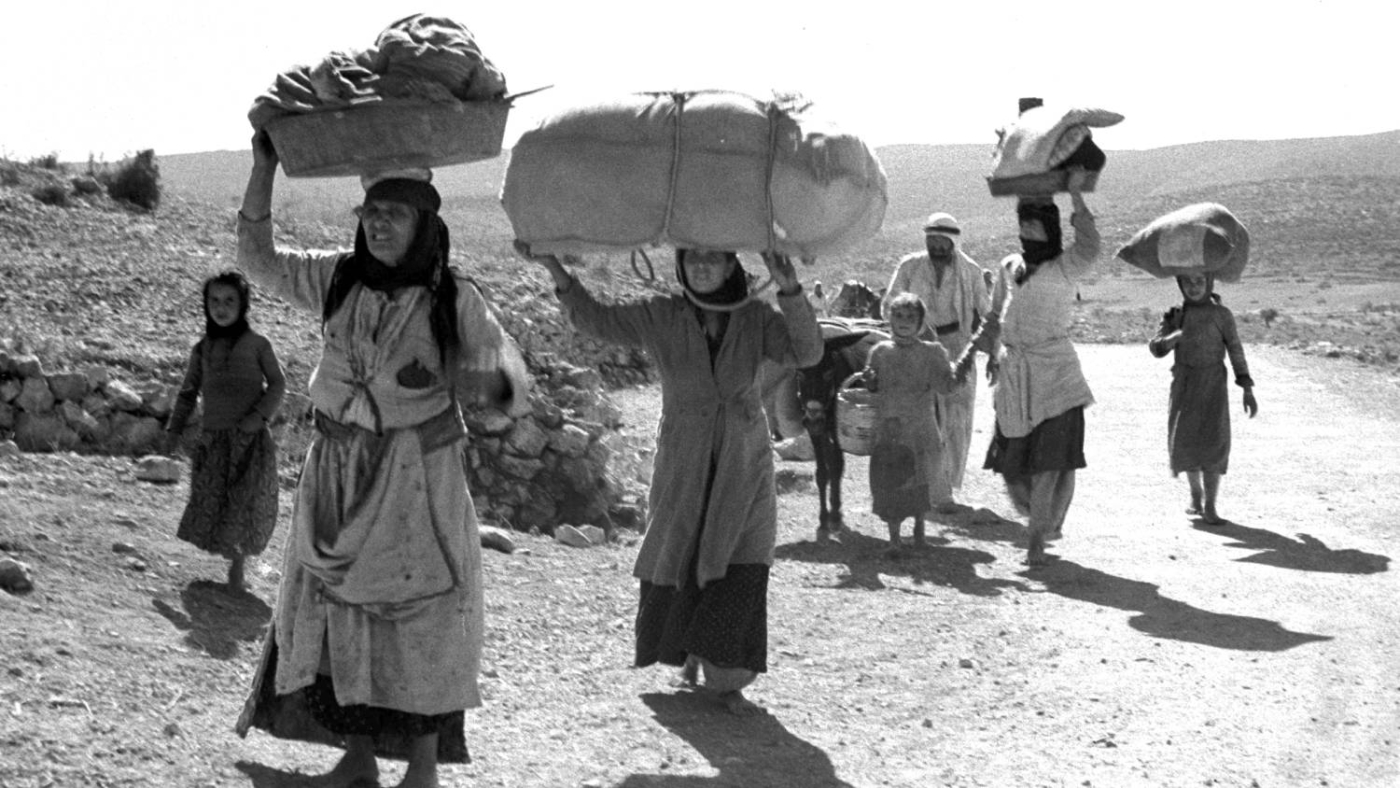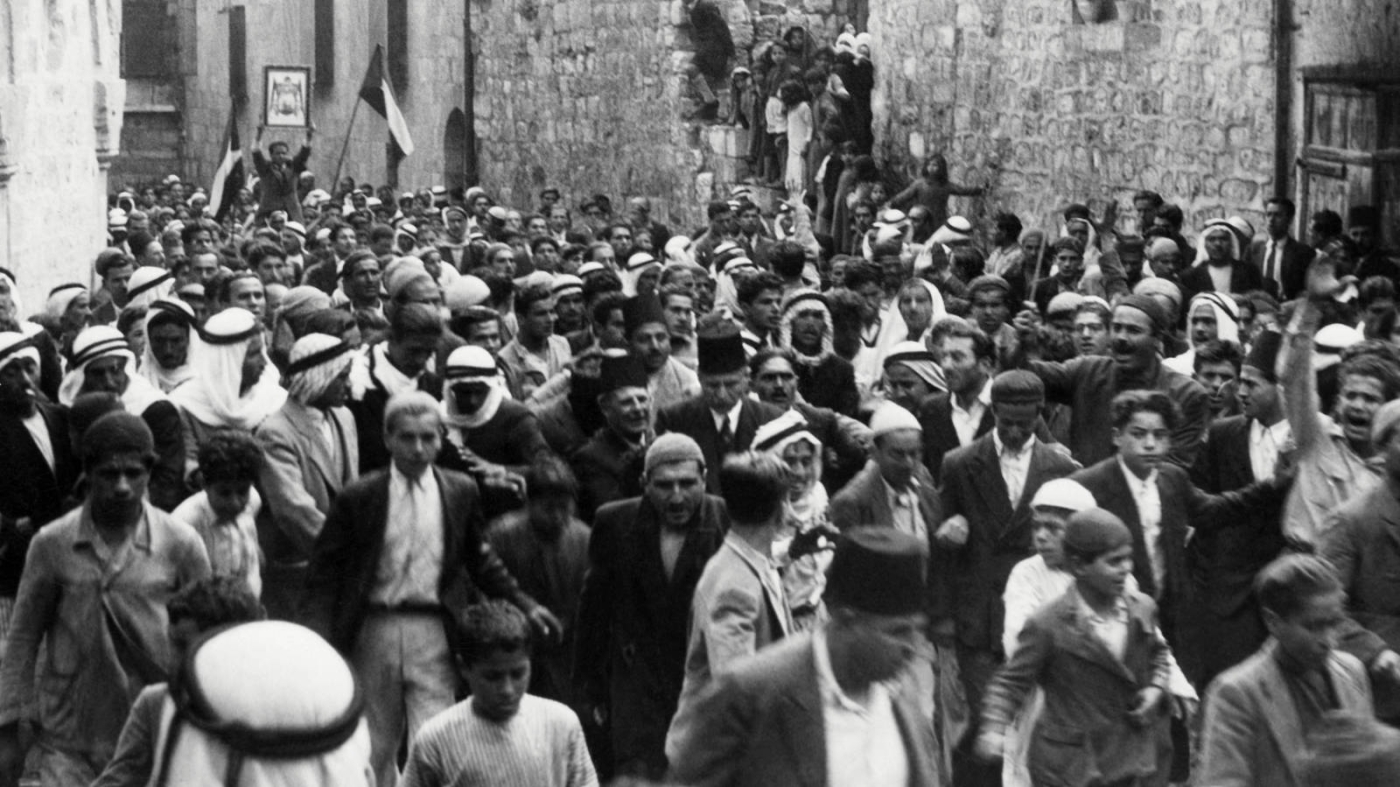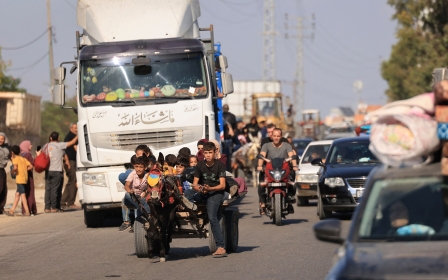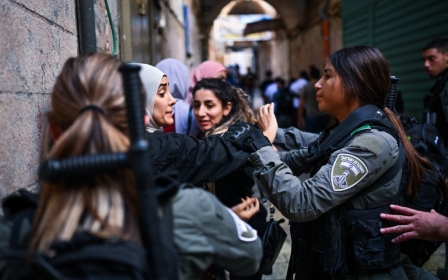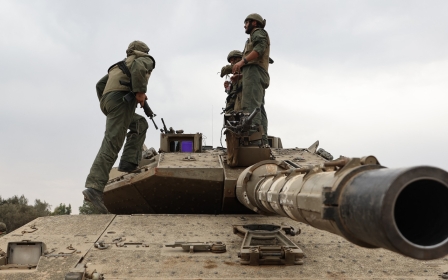Israel-Palestine war: Why Israel's call to evacuate northern Gaza violates international law
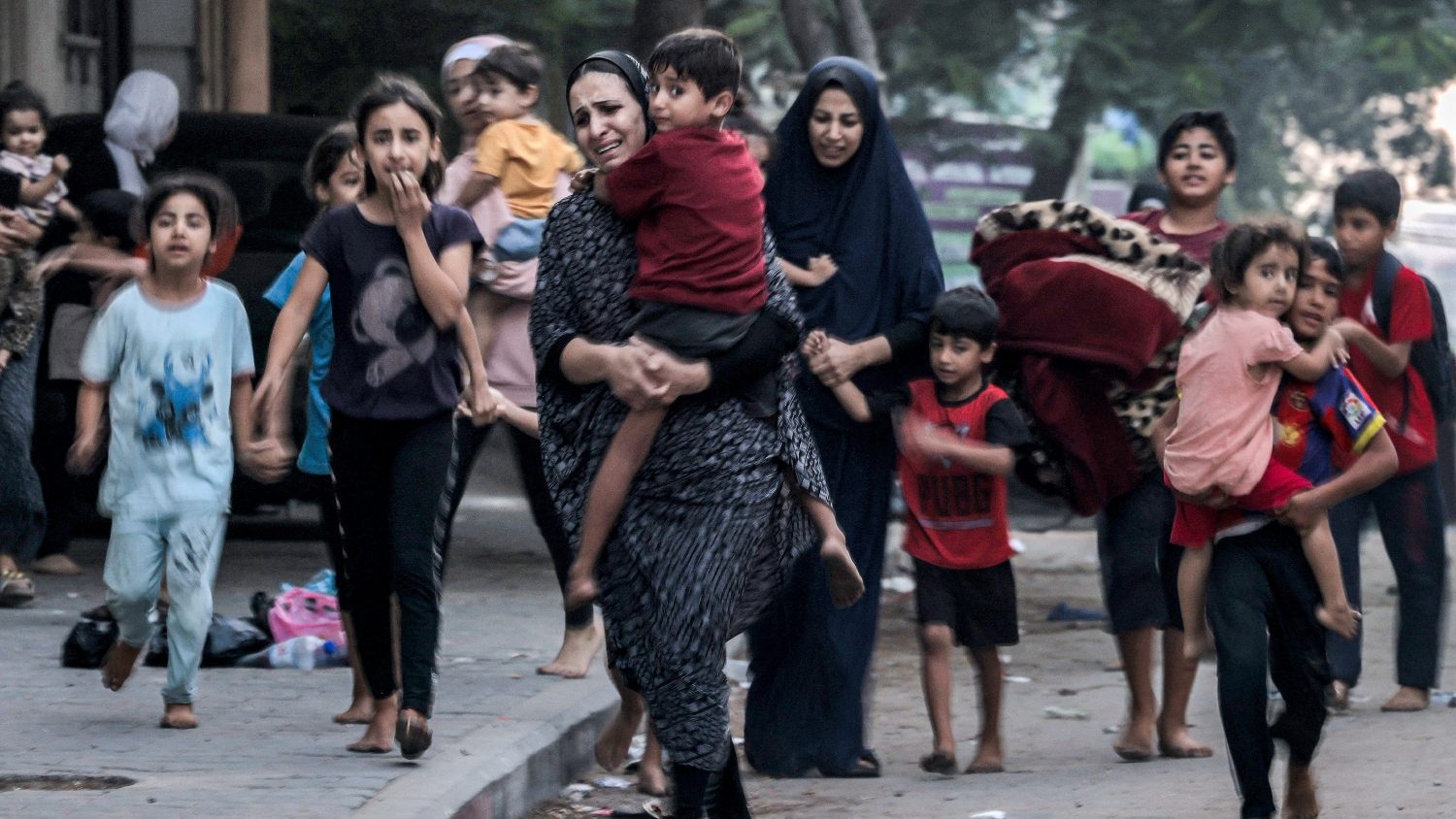
Israel's army at midnight local time on Friday warned the more than one million Palestinians living in northern Gaza to move to southern Gaza "for your own safety and the safety of your families" within 24 hours.
The order asked them to leave Gaza City for any points below Wadi Gaza, a largely rural area in the enclave with few facilities like shelter, ahead of what could potentially be an Israeli ground invasion of Gaza.
UN Secretary-General Antonio Guterres said that trying to evacuate people out of an area that is under bombardment and under siege is not only "extremely dangerous" but might just be "simply impossible".
Israel's envoy to the United Nations said on Friday that "the UN should be praising Israel for these precautionary actions". But since being told to evacuate, at least 70 people in the process of leaving, mainly women and children, were killed in Israeli air strikes on the main highway connecting north and south Gaza.
Since the Israeli army told Palestinians to evacuate, Palestinians in Gaza have been torn about what to do, as many fear the worst - a repeat of the Nakba. The Nakba, or "catastrophe" as it is known in English, refers to the ethnic cleansing of some 750,000 Palestinians from their lands and homes in historic Palestine to make way for the creation of Israel in 1948.
New MEE newsletter: Jerusalem Dispatch
Sign up to get the latest insights and analysis on Israel-Palestine, alongside Turkey Unpacked and other MEE newsletters
Hamas told residents in northern Gaza to not heed Israel's warning, calling it false propaganda, and mosques in Gaza were broadcasting calls for people to stay and resist.
And what will happen to the thousands of wounded being treated in hospitals? Since the Palestinian attacks on Saturday that have so far killed 1,300 Israelis, the bombardment of the Gaza Strip has killed 1,900 and wounded 7,696 Palestinians, including 2,000 children and 1,400 women.
Doctors Without Borders (MSF) released a statement condemning Israel's evacuation warning, saying that "this represents an attack on medical care and on humanity".
Follow Middle East Eye's live coverage for the latest on the Israel-Palestine war
"We are talking about more than a million human beings. 'Unprecedented' doesn’t even cover the medical humanitarian impact of this. Gaza is being flattened, thousands of people are dying, this must stop now.
"We condemn Israel’s demand in the strongest possible terms," Meinie Nicolai, MSF director general, said in the statement.
What does international law say?
The United Nations, the World Health Organisation and the International Committee of the Red Cross (ICRC) have all denounced the order.
In fact, the evacuation order forced the International Committee of the Red Cross (ICRC) into making a rare public statement on Friday calling for a pause in the fighting and questioning the legality of such an announcement.
"Instructions issued by the Israeli authorities for the population of Gaza City to immediately leave their homes, coupled with the complete siege explicitly denying them food, water, and electricity, are not compatible with international humanitarian law.”

The directive from Israel can be likened to an involuntary deportation of the civilian population according to Gissou Nia, a human rights lawyer and director of the Strategic Litigation Project at the Atlantic Council.
“The evacuation order may amount to forced displacement of the civilian population, which is a violation of international humanitarian law."
Nia told Middle East Eye that this "can also amount to violations under the Rome Statute, the treaty that animates the International Criminal Court. The ICC has jurisdiction over the territory of Gaza and the ICC prosecutor does have an ongoing investigation into the situation."
Article 8(2)(e)(viii) of the Rome Statute addressing war crimes prohibits "ordering the displacement of the civilian population for reasons related to the conflict, unless the security of the civilians involved or imperative military reasons so demand".
The order to evacuate seemed more like an ultimatum to Adam Shapiro of Democracy for the Arab World Now, a Washington-based human rights organisation.
"It is not just an evacuation order. It is a threat to leave or be killed."
What is the Nakba?
+ Show - HideThe Nakba is one of the key events in modern Middle East history and one that has come to define the Israeli-Palestinian conflict ever since.
Also known as "The Catastrophe", it began in late 1947 and 1948, as the new state of Israel came into existence.
Palestine was part of the Ottoman Empire for hundreds of years until it was captured by the UK at the end of World War One (1914-18).
The League of Nations - a forerunner of the UN - gave Britain a "mandate" over Palestine after the war, which did not take into account the wishes of the native Palestinian population.
The aim of such mandates was to bring about "the rendering of administrative assistance and advice" to native populations until they were deemed capable of standing alone as independent states.
What was the problem?
The British Mandate incorporated the Balfour Declaration, sent by Arthur Balfour, the British foreign secretary, to Lord Walter Rothschild, a prominent member of the British Jewish community, in 1917.
It pledged to establish "in Palestine a national home for the Jewish people", who made up less than 10 percent of the population at the time.
During the mandate years (1923-48), the UK facilitated the immigration of European Jews to Palestine, increasing their population 10-fold, from 60,000 in the pre-Mandate era to 700,000 by 1948.
They also trained, armed and supplied Zionist groups, and allowed them a degree of self-governance.
In contrast, the native Palestinian population, which rejected European Jewish immigration and called for independence, was violently suppressed.
The number of Jews arriving in Palestine from Europe and elsewhere increased in the wake of the Holocaust, which systemically targeted Jews and others, resulting in the deaths of more than 6m people.
In February 1947, Britain announced it would terminate the mandate and turn the question of Palestine over to the newly formed United Nations.
The UN adopted a partition plan in November 1947, which divided Palestine into two parts: 55 percent would form a Jewish state, while 45 percent would create an Arab state. Jerusalem would be kept under international control.
But many argue that the plan did not take into account populations at the time.
In addition, Jewish paramilitary groups produced a strategy to control the borders of the new territory, called Plan Dalet (below).
Some of their members would go on to become key Israeli leaders, including Yitzhak Rabin (prime minister 1992 - 1995), Ariel Sharon (prime minister 2001 - 2006) and Moshe Dayan (minister of defence 1967 - 1974).
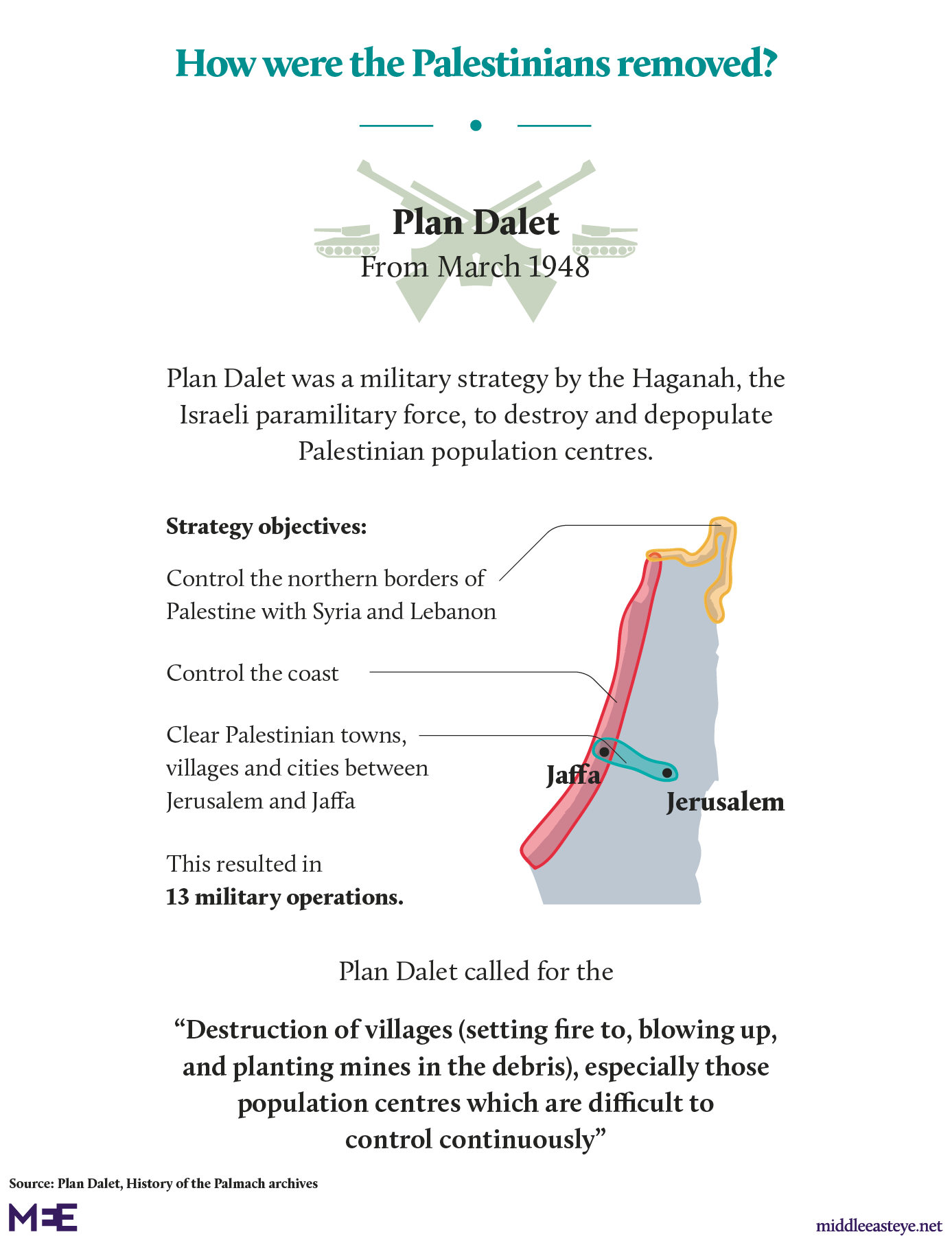
In the weeks and months that followed, thousands of Palestinians were killed or driven from their homes and communities uprooted by Jewish paramilitary groups.
Jews were also killed by Palestinian groups, if not in the same numbers.
On 14 May 1948, the State of Israel was unilaterally declared, a day before the British Mandate officially expired.
The new state had increased its share of historic Palestine from 55 percent to 78 percent. The remaining 22 percent was under Arab control.
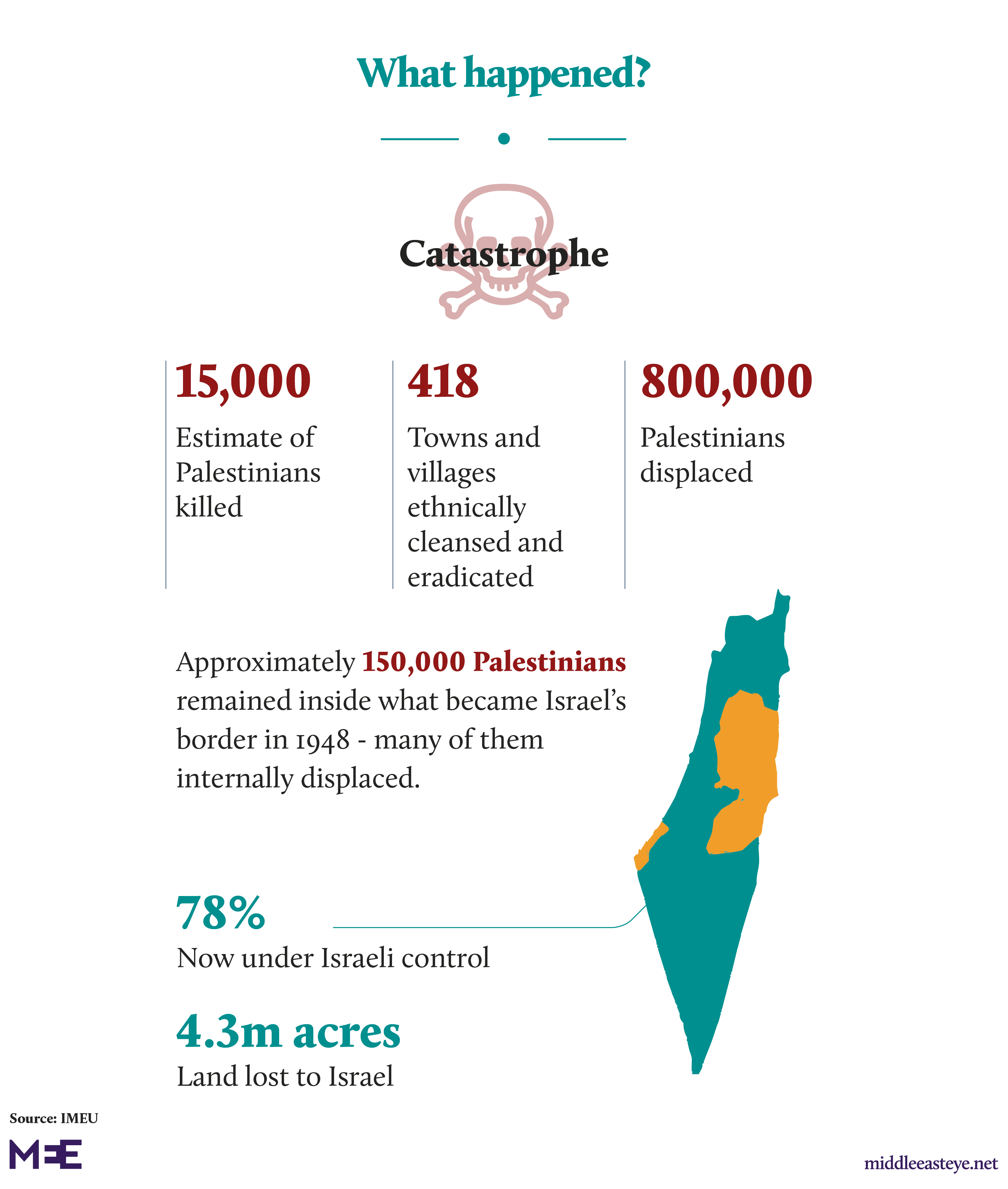
Many of the Palestinians who fled or were driven from their homes never returned to historic Palestine. Much of it is now the modern-day state of Israel.
More than 70 years later, millions of their descendants live in dozens of refugee camps in Gaza, the West Bank, and surrounding countries, including Jordan, Syria, and Lebanon.
Many still keep the keys to the homes that they and their families were forced to leave.
Nakba Day is now a key commemorative date in the Palestinian calendar. It is traditionally marked on 15 May, the date after Israeli independence was proclaimed in 1948.
Some Palestinians also observe it on the day of Israeli independence celebrations, which itself changes from year to year due to variations in the Hebrew calendar.
Shapiro told Middle East Eye that it is "forced displacement, and it is under the conditions of the total siege. It is compulsion."
He argues that making such a threat is a violation of international law.
Israel's siege has cut off electricity, water, fuel, food and the delivery of any supplies into the Gaza Strip. The intentional starvation of a civilian population as a war tactic is a violation of the Geneva Conventions.
The ICRC statement mentions the impact the siege has on the legality of such an order.
"The instructions issued by the Israeli authorities for the population of Gaza City to immediately leave their homes, coupled with the complete siege explicitly denying them food, water, and electricity, are not compatible with international humanitarian law," the ICRC statement said.
The organisation says that when military powers order people to leave their homes they have a responsibility to ensure the population has access to basic necessities, which is not possible when an area is under a complete blockade.
"Gaza is a closed area of limited size and resources. People have nowhere safe to go and many, including the disabled, elderly, and sick, will not be able to leave their homes. International humanitarian law protects all civilians, including those who remain. Today, it is impossible for Gazans to know which areas will next face attack," the ICRC said.
Middle East Eye delivers independent and unrivalled coverage and analysis of the Middle East, North Africa and beyond. To learn more about republishing this content and the associated fees, please fill out this form. More about MEE can be found here.


